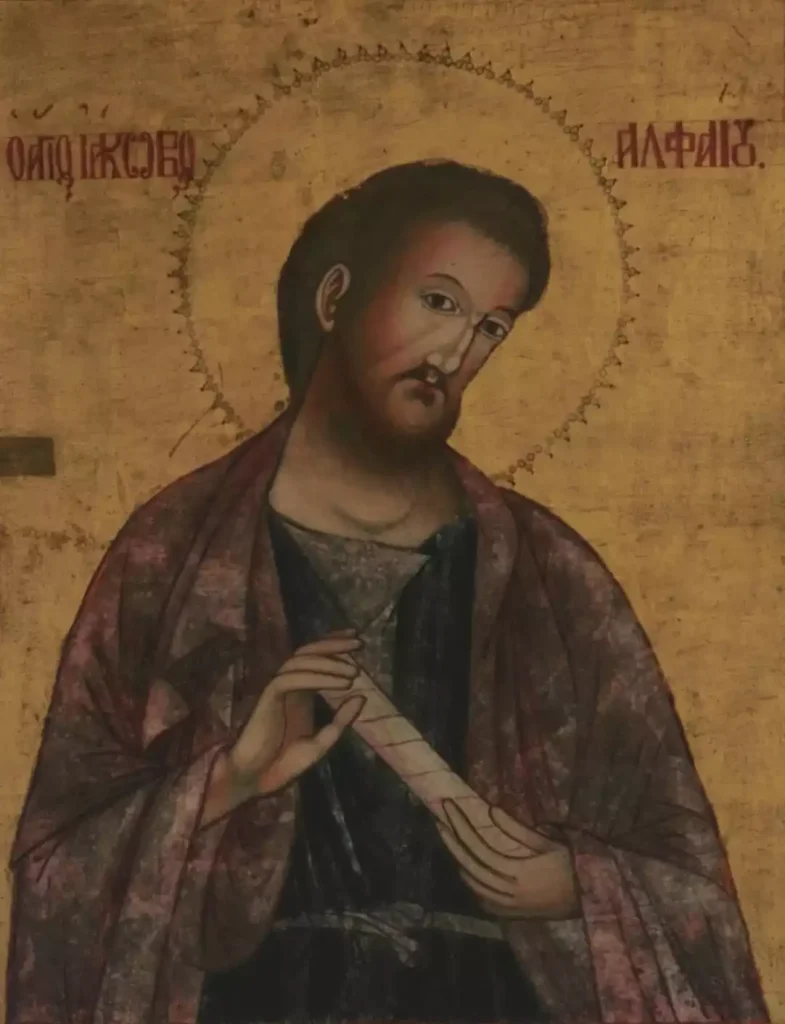
Saint James, son of Alphaeus, a figure of profound religious significance and one of the twelve apostles, lived in the first century AD. His exact dates of birth and death are not definitively known, but he is believed to have lived during the early Christian era. Esteemed as a saint in numerous Christian denominations, James is often identified through his relationship to Alphaeus, setting him apart from other biblical figures with the same name. His life, intertwined with the emergence of Christianity, provides insight into the early Church’s development.
Early Life and Apostolic Calling
James’ early years are shrouded in obscurity, with limited historical documentation available. Traditional accounts, however, suggest that he was born in Galilee, a region notable for its rich cultural and religious diversity during the Roman period. His father, Alphaeus, is a somewhat enigmatic figure in biblical records, often leading to debates among scholars about his exact identity. Despite this, James’ affiliation with Alphaeus unequivocally established his distinct identity among the early disciples of Jesus Christ.
James’ journey as an apostle commenced following his calling by Jesus. This pivotal moment marked a significant transition in his life, from relative anonymity to becoming a key figure in the early Christian community. His inclusion among the Twelve Apostles, as documented in the New Testament, underscores his importance in the nascent Church. The role of James in the Apostolic age, though not as prominently featured as some of his contemporaries, remains a subject of theological and historical interest.
Ministry and Contributions
James’ ministry is intricately linked with the early Christian Church’s growth and development. His contributions, though not extensively documented like those of Peter or Paul, were nonetheless pivotal in spreading the teachings of Jesus. Operating primarily in and around Jerusalem, James played a crucial role in the foundational years of Christianity.
His involvement in the Council of Jerusalem, as described in the Acts of the Apostles, highlights his significance in early Christian deliberations and decisions. This council, a critical event in the history of the Church, addressed crucial questions regarding the inclusion of Gentile converts and the observance of Jewish law. James’ presence and participation in these discussions underscore his status as a respected and influential figure in the early Christian community.
Martyrdom and Lasting Impact
The culmination of Saint James’ life, like many of his apostolic peers, was marked by martyrdom. While the details surrounding his death are sparse and vary across different historical accounts, it is widely accepted that he was martyred for his unwavering commitment to his faith. This act of ultimate sacrifice significantly bolstered his legacy, serving as a poignant testament to his devoutness and the perils faced by early Christians.
In the centuries following his death, saint James, son of Alphaeus, has been venerated as a saint across various Christian denominations. His steadfastness in faith and dedication to spreading the message of Jesus Christ have made him an enduring figure in Christian history. His influence extends beyond theological realms, often seen as an exemplar of faith and perseverance amidst adversity.
Saint James, son of Alphaeus, remains a compelling figure in Christian history. His life, though not as extensively chronicled as some of his contemporaries, provides valuable insights into the early Christian Church’s dynamics. His contributions, both in life and through his martyrdom, have left an indelible mark on the fabric of Christian faith and tradition. As a saint, his story continues to inspire and guide believers around the world.
Feast Day: October 9
References
- “The Twelve: The Lives of the Apostles After Calvary” by C. Bernard Ruffin, Publisher: Our Sunday Visitor, 1997.
- “The New Testament: A Historical Introduction to the Early Christian Writings” by Bart D. Ehrman, Publisher: Oxford University Press, 2012.
- “The Apostolic Age in Patristic Thought” by Alistair Stewart-Sykes, Publisher: Routledge, 2004.
